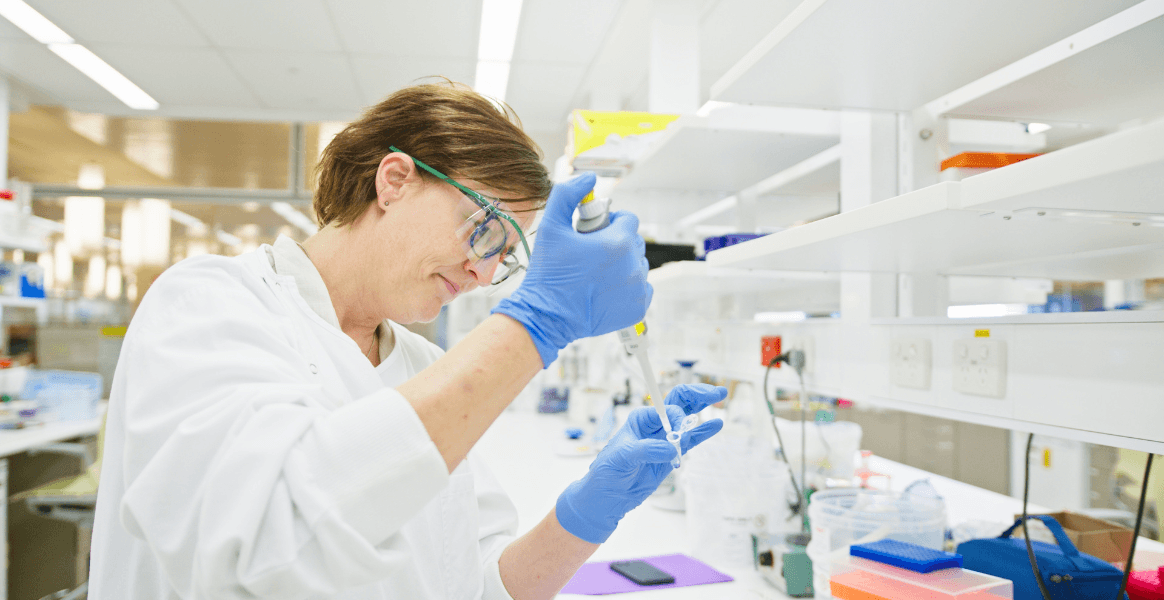Dr Jodi Saunus' Story

Today, more than 55 women will hear the words “You have breast cancer” and eight women—mothers, daughters, sisters and friends—will tragically lose their fight against the disease.*
Research is what gives us hope.
Behind each of these patients who are battling cancer, there is a group of dedicated researchers who are striving to develop new treatments when traditional options are not suitable. Until we can help every patient, then our research continues. Breast cancer isn’t just one disease, there are different types and subtypes, which grow at different rates and can be diagnosed at different stages.
No two women are the same and neither are their breast cancer journeys. However, many will find they have one thing in common—that their breast cancer is invasive, with the potential to spread to other areas of the body.
Triple-negative breast cancer (TNBC) is an invasive subtype that tends to grow fast, and can be highly resistant to chemotherapy. Accounting for just 10% of all breast cancers, TNBC is responsible for a disproportionate amount of the overall burden of breast cancer in Australia—particularly amongst women under 50, where the five-year mortality rate is more than 20%.*
Dr Jodi Saunus and her colleagues at Mater Research are homing in on TNBC, trying to unlock new diagnostics for at-risk patients, and working towards the development of new treatment pathways.
“Because our team spans across breast cancer research, clinical care and bioinformatics, we are in an incredible position to do this work,” Dr Saunus said. Her team is working with Mater patients to gather and compare different types of breast tissue, as part of an ambitious new project to decode a range of mysteries about TNBC susceptibility and chemotherapy response.
“This study is allowing us to dive deeper into the epigenomics of human breast tumours than ever before, so the chances of discovering entirely new information about breast cancer are very high.
This innovative project has great potential to impact the way TNBC is managed, including the development of new drugs that make tumours more sensitive to chemotherapy.” Dr Saunus said.
THANK YOU. Your support of Cars for Cancer enables researchers like Dr Jodi Saunus to conduct this vital cancer research, and provides hope for a future where alternative treatments with proven efficacy become available here in Australia, and across the globe.
You are helping to change lives with every ticket that you buy, and it might just change your life too! Thank you for your support

*Cancer Australia, 2022 * New study utilising data from the Queensland Oncology Repository (Vaz-Gonçalves et al.), 2024
